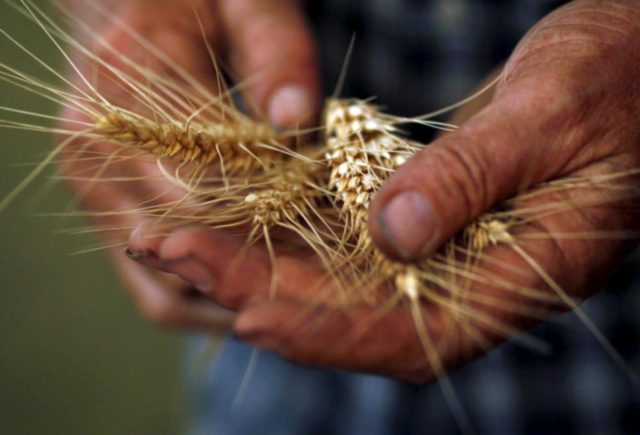THE DROUGHT in the Northern Cape has severely affected more than 18 000 farms, covering more than 25 million hectares.
This is according to the newly-
appointed MEC for Agriculture, Land Reform and Rural Development in the Northern Cape, Mase Manopole, who delivered the department’s budget on Thursday.
Manopole pointed out that the continuous absence of summer rains had been exacerbated by higher than average temperatures.
“The magnitude of this drought affects almost the entire Province with only the eastern part of the John Taolo Gaetsewe and Frances Baard districts receiving significant rainfall thus far. Rain events that did occur in Pixley ka Seme, ZF Mgcawu and Namakwa where erratic and large parts have received no rain,” said Manopole.
She added that the ongoing drought had severely affected the animal production farmers of the Province, with many losing or reducing their breeding stock to less than half their numbers. “The animal production team will continue to focus their research on which animals are best adapted to our harsh environment. Research in collaboration with our partners will continue on the Tankwa goats.”
Announcing an allocation of R60.5 million for research and technology development, Manopole pointed out that the aim of the programme was to render expert and needs-based research, development and technology transfer services impacting on development objectives.
The focus of Manopole’s budget for the 2020/21 financial year continues to be on smallholder producers who, she pointed out, remained the most under-resourced segment of the sector.
Manopole stated that the biased focus on smallholder farmers was because of the need to transform the sector. “Transformation is required to increase the participation of black farmers, in particular smallholders in the sector, as well as to increase the participation of women and youth, and people with disabilities.”
Part of its support is to open access to export markets and the department will, in the coming financial year, support four farms, consisting of various individual raisin farmers, to acquire their South African Good Agricultural Practices (SA GAP) accreditation.
The budget allocation to the Sustainable Resource Management Programme for the coming financial year is R32.848 million.
Manopole explained that this programme provides engineering support to farmers for sustainable development and management of agricultural resources.
The programme includes the allocation for the LandCare conditional grant of R7.6 million. The conditional grant promotes sustainable use and management of natural resources through community-based initiatives. Four projects are planned which includes the equipping of boreholes, chemical removal of invader species and awareness programs.
Farmer support and development will receive the lion’s share of the budget, namely R242.3 million, with the Comprehensive Agricultural Support Programme (CASP) receiving R122.9 million and the Ilima/Letsema Projects R61.6 million.
Included in the CASP grant is a ring-fenced allocation of R24.740 million that enables the department to deepen extension services in the Province.
According to Manopole, the CASP allocation will be used mainly for on and off farm infrastructure and it is anticipated that a minimum of 1 000 jobs will be created from these initiatives.
The Ilima/Letsema grant is used mainly for the Vaalharts Revitalisation Programme and the Namakwa Irrigation Development Project (ie Onseepkans Irrigation Development, Pella and Coboop).
The department will also continue in the coming year to promote the establishment of household food gardens and backyard poultry farming to encourage households and communities to produce their own food.
A total of 3 000 households will be supported with agricultural food security initiatives through supply of garden and poultry starter packs for rural communities.
The department will also continue to support crop farmers with production inputs for production of grains (wheat and maize) as well as vegetables. Production inputs include seed, diesel and operational costs. The department intends to support 20 projects where 900 hectares of land will be planted mainly with grains (wheat and maize) under irrigation in the Frances Baard, Pixley ka Seme and ZF Mcqawu districts as well as yellow maize and vegetables in Namakwa.
A total of 1 000 work opportunities will be created as part of the EPWP project, mainly through infrastructure development on livestock farms and irrigation infrastructure.
This will be realised through construction on livestock infrastructure in all five districts, vineyard development in Namakwa and ZF Mcqawu districts during pruning and harvesting season and revitalisation of irrigation infrastructure at the Vaalharts Revitalisation Project. This will include the construction of overnight dams, and the installation of subsurface drainage systems to address water loss caused by dilapidated and ageing irrigation infrastructure.








